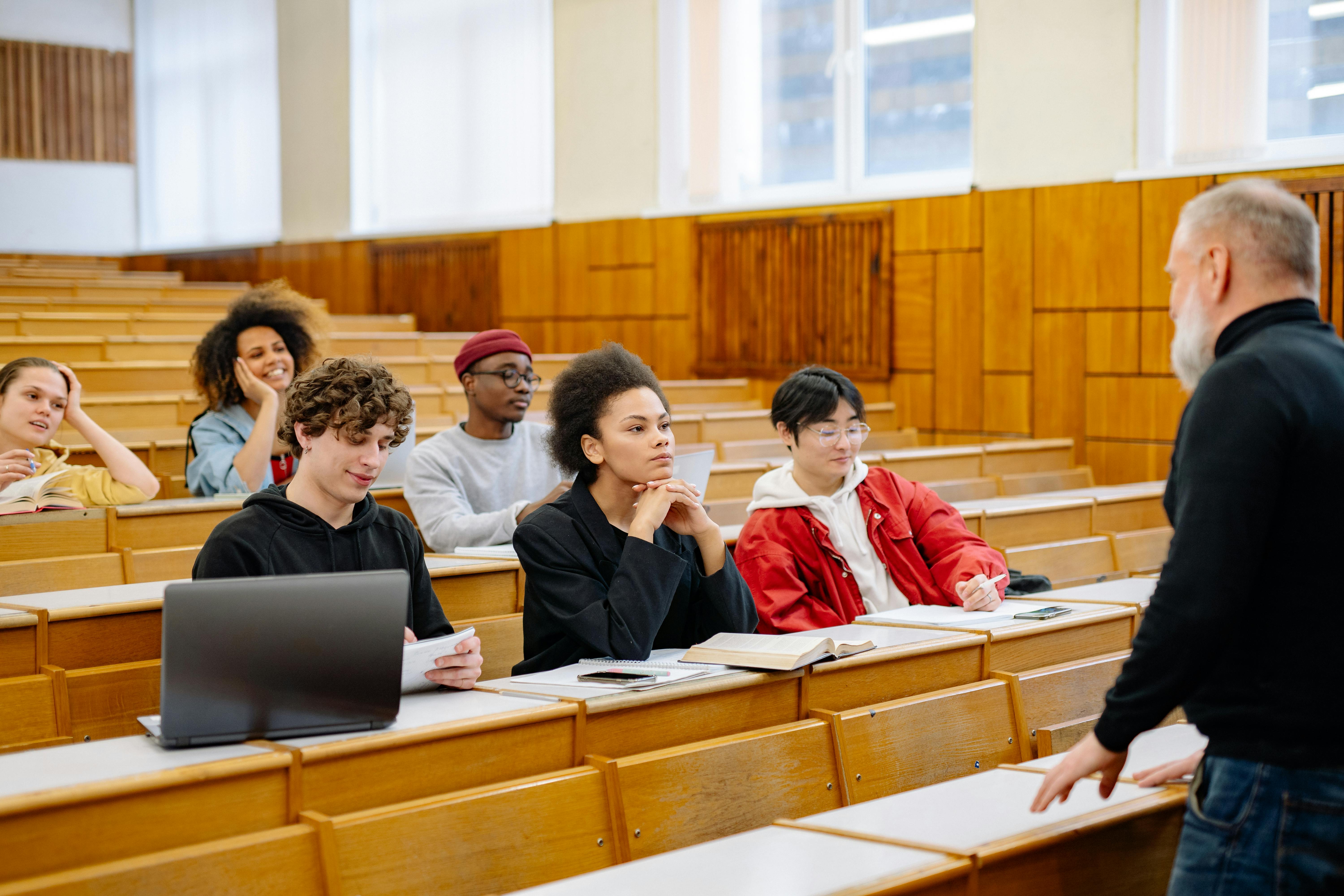Creativity Over Coding? What Skills Still Matter in an AI World

Parents want to help set their kids up for success, and these days that path to success seems less clear than it did before the advent of AI. Ezra Klein recently published a podcast on Educating Kids in the Age of AI in which he stated, “I honestly don’t know how I should be educating my kids. How do you prepare kids for a world you can’t predict?” As we look to the future, contemplating how to possibly “future-proof” our little ones and prepare them for successful careers, some twenty years from now, solid ground seems incredibly hard to come by.
It's much easier to identify ground that was once solid but has now become incredibly shaky, given recent advancements in Artificial Intelligence. In early June, Ian Bremmer, political scientist and author, framed it this way: “We were telling these kids five years ago, the smartest advice for the kids was ‘learn how to code.’ That is literally worse advice now than ‘get a face tattoo.’ You can’t do worse than ‘learn to code.’” While this was stated for humorous effect, coding is quickly becoming the domain of AI, as LLMs like Anthropic’s Claude and Open AI’s Chat GPT become much more proficient at generating usable code. The kids who went to coding camps and CodeAcademy no longer have the edge their parents had hoped for.
Parents are looking for stability and opportunity for their children, but many don’t see their own careers as being safe from developments in AI. These generative AI models are in their infancy, and they are already disrupting some of the entry-level white-collar jobs that parents aspired to as they entered the workforce.
So, what is a parent to do? How do we prepare our kids for this new age of employment? While it is impossible to predict the exact jobs and careers that will exist in twenty years, it is reasonable to propose that certain traits should have enduring utility. Our kids will have to acquire a degree of technical proficiency and digital literacy to thrive in a world replete with AI agents and AI systems capable of autonomous general intelligence and eventually artificial superintelligence. Our technology will inevitably change us and impact how we navigate the world. Certain qualities and characteristics will help us achieve a smoother transition into this new era:
Adaptability
If there’s a single attribute that will be critical to success in the world with generative AI, it’s the ability to adapt, to pivot and change as circumstances dictate. What worked yesterday might not work today. As our knowledge base evolves and we experience more frequent technological and material advances, the most agile learners will have an advantage. We can prepare our children by encouraging them to be resilient and proactive.
Commitment to Continuous Learning
Lifetime learning is going to be a prerequisite in the new era. The completion of any academic degree or certificate will simply be the beginning of a process of learning and relearning. Those individuals who know best how they learn and the ideal conditions for their own knowledge acquisition will have an advantage. Know thyself and commit to a lifetime of internal growth.
Critical Thinking
The presentation of knowledge in the world of AI poses particular challenges. Voila! Here’s the statistically derived answer to your query. But the answer frequently leaves out a great deal of complexity, nuance, and ambiguity. Students will need to be able to move beyond the simplified answers provided by their well-designed queries and seek true understanding.
Students grounded in epistemology—able to question claims of knowledge, their sources, and potential biases or weaknesses—will be essential. Students able to come to their own nuanced conclusions through deeper thinking in this new era of immediate answers and fast-flowing information will play a critical role. In particular, as generative AI becomes better and better at creating images and videos and documents with the appearance of authenticity, the ability to distinguish between real and fake sources, to discriminate and critically assess evidence, will be of particular value.
Cognitive Flexibility and Problem-Solving
Cognitive Flexibility, the ability to shift one’s own thinking and integrate different perspectives, will be critical in the rapidly changing world of evolving AI. There are many ways to solve a problem, and there will be many tools available to help us solve problems. If a student can learn to approach problems from different angles and be more fluid with their thinking, they’ll stand out from the crowd who depend on the simplified, one-way solutions provided by AI.
Creativity
The ability to generate novel ideas and bring together insights from diverse fields will continue to power innovation in the AI world. Those who can stand at the intersection of different fields, merging insights from the sciences and the humanities, uniting new technologies with liberal arts, will help usher in new inventions. As AI matures, we will have many powerful tools to assist the creative process, and the ability to skillfully harness these tools will distinguish those who succeed in the new world.
Collaboration
Success in the new world will continue to involve deep collaboration with others. A lone individual working with AI agents and tools will be able to accomplish more than at any prior time in history, but a team of individuals working with these same tools will outperform the solitary worker. In The Innovators, Walter Isaacson explores the birth of the digital age and examines how the truly successful innovators learned to recruit and enroll others, to listen and learn and collaborate. The lone wolf doesn’t hold a candle to the great teams, building and learning from each other: human collaboration, trust, and teamwork will continue to lead to the greatest breakthroughs and durable successes in the age of AI.
Emotional Intelligence and Communication Skills
Teams will continue to thrive in the AI era, and the ability to work well within those teams, to communicate skillfully and effectively, will carry great weight. We must cultivate our emotional intelligence and sensitivity to our coworkers to get the most out of these teams. Those students who know themselves—who can empathize, manage conflict, and motivate others—will have valuable skills in the age of AI.
Entrepreneurial Spirit
Entrepreneurship will thrive when generative AI tools and agents allow individuals to act more like fully formed corporations. Individuals will have heretofore unimaginable digital resources at their disposal for planning, promoting, and implementing a business strategy. A little initiative and an appetite for risk-taking, coupled with powerful AI agents, will help many individuals create their own futures.
Technological Fluency and AI Fluency
In the new world, there won’t be a single monolithic AI to rule them all. There will be many AI systems with different use cases and abilities. We are seeing some of this early fragmentation now, and it will likely continue. Students will need to know how to navigate the AI landscape and work with different systems. Those with greater facility with the new technologies, as well as general resourcefulness and critical thinking skills, will have an advantage.
Looking Ahead
The age of AI is dawning, and our children will be its denizens. They’ll have relationships with machine intelligences and will work closely with artificial and human intelligences. They’ll witness breakthroughs and innovations that will baffle our imaginations. Society may be radically transformed by the systems we are now developing. And while we argue over the time horizons, it’s clear that profound changes will be here soon.
As parents, we have a role in helping prepare our children for the future, even when that future looks so different from anything we have ever experienced. I’ve always loved Kahlil Gibran’s metaphor of parents as archers, and our children as arrows that we launch into the future. Our children will go where we cannot go and experience what we cannot imagine.
In our efforts to help launch these young people towards satisfying lives and careers, we can undertake specific actions which may help foster some of the aforementioned skills.
Adaptability: Expose your kids to novel experiences, places, and cultures to help foster the spirit of adaptability. Take them beyond their comfort zones and their routines to build this skill.
Commitment to Continuous Learning: Encourage your children’s inclination towards independent and self-directed learning, regardless of the subject matter. Let them follow that spark of interest, and help provide resources when possible. Reinforce their impulse to learn and help create pathways for deeper investigation and scholarship.
Critical Thinking: Model inquiry and critical thinking for your kids. The dinner table is a fabulous place to explore arguments, question assumptions, and look for connections. Growing up, my father brought up topics of national importance or issues from his own own work during our sit-down dinners, and we all got to test out our critical thinking skills in a low-risk setting.
Cognitive Flexibility and Problem-Solving: Allow your kids to try to solve problems independently before you jump in. Encourage self-reliance and provide the minimal support, the lightest scaffolding possible, to help them come to resolution. Encourage them to look at problems from different vantage points, to consider other approaches or perspectives if their first effort is not yielding success.
Creativity: If you have a chance, check out the notebooks of Leonardo DaVinci. Creativity, inquiry, curiosity erupt from every page. Our greatest creators frequently possess the most curious and inquisitive minds. They create enough space in their lives to experiment, take risks, and try new things. Encourage your children’s creative expression by providing them with tools or resources that foster creativity: journals, notebooks, drawing pads and paper, musical instruments, culinary instruments: the tools they need to explore their own interests.
Collaboration: Being part of groups builds collaboration skills. Team sports, rec leagues, clubs, camps and other group activities necessitate working together to accomplish shared goals. You can also collaborate on the homefront, working together to complete household tasks, trip planning, shared creative projects and more.
Emotional Intelligence and Communication Skills: Adults have a major role to play in modeling mature emotional responses and communication skills to our kids. Our children look to us, sometimes indirectly, to see how we do conflict, how we express ourselves in a variety of conditions. Can we admit when we are wrong, when we need help, when we are upset, and when we need some time to ourselves? Can we show up with empathy and not immediately jump to try to fix things, but model deep attention and listening? When we do our own inner work, know ourselves better and communicate more effectively, we can teach our kids volumes about skillfully navigating the adult world.
Entrepreneurial Spirit: Encourage entrepreneurial ventures: the cookie delivery service, the dog-walking service, the lawn mowing service, the hedge fund. Your kids will learn something with every venture, irrespective of the financial remunerations. Risk taking is important, and the more kids try, and fail, and try again, the more prepared they will be to be entrepreneurial in their careers.
Technological Fluency and AI Fluency: Your kids will likely run circles around you when it comes to using the most current technology. Typically, they will be your teachers, showing you the most amazing AI video model, or podcast generator, or deep research application before it hits your radar. Students now have the opportunity to study AI in college and beyond in a more direct, hands-on manner. Opportunities to gain fluency in the newest technologies will be more broadly available to your students, and it’s good to support these opportunities if there is interest.
While we cannot prepare our children for every eventuality, gazing into a future that we cannot predict, we can absolutely give our kids a sense of belief in themselves. We can help them embrace changes, tolerate ambiguity, overcome setbacks, and learn from everything and everyone. Encourage their curiosity, flexibility, empathy, creativity, and risk-taking every chance you get. Our dedication to our kids, our love and support for their growth, will help them face this uncertain future with courage and a greater sense of possibility.



